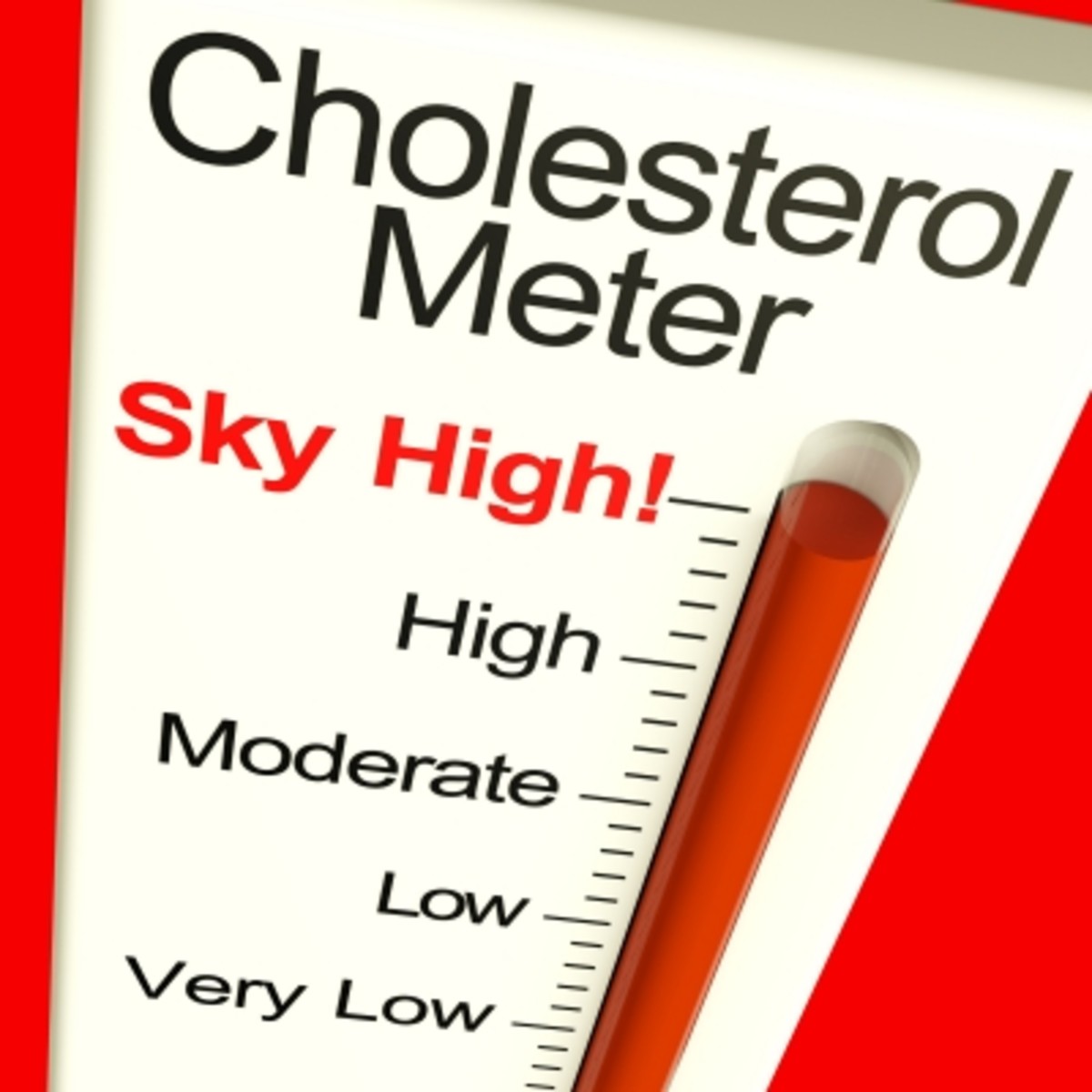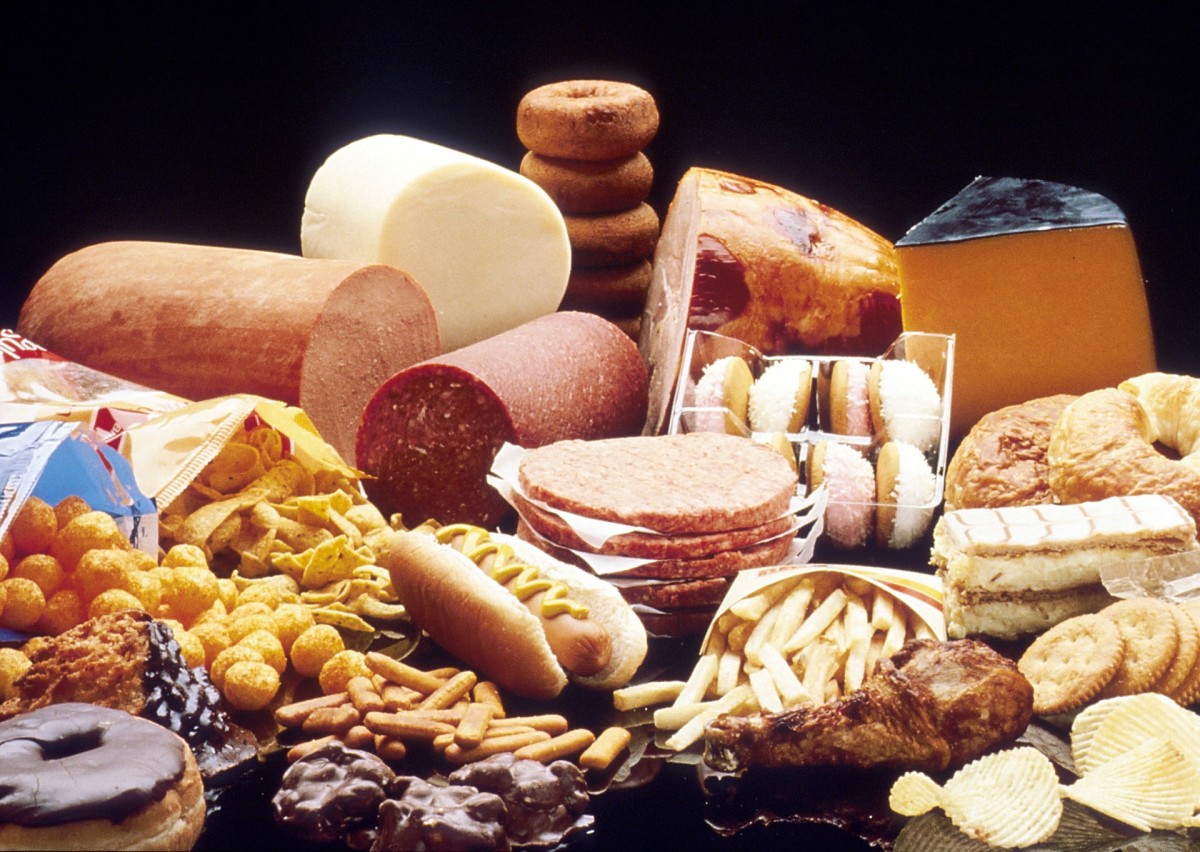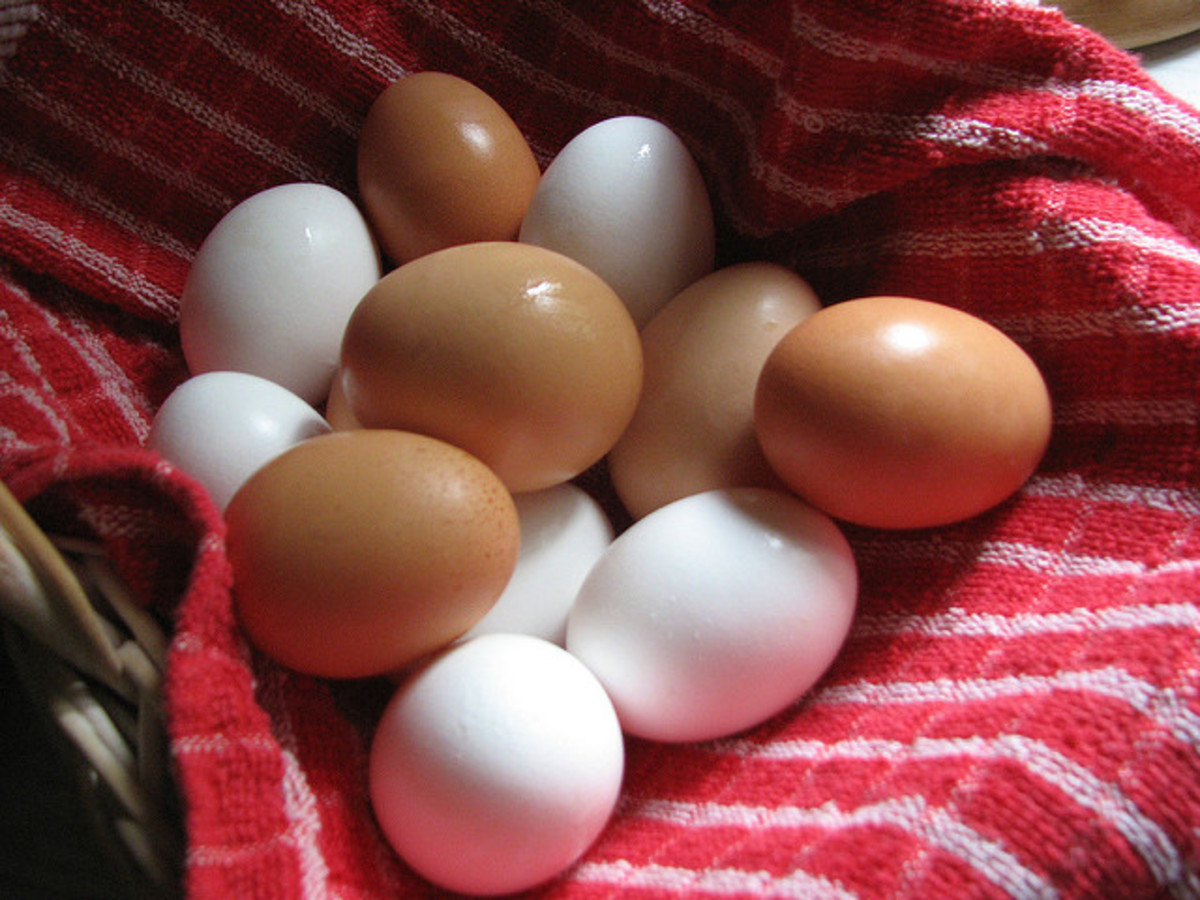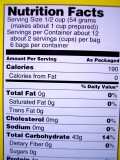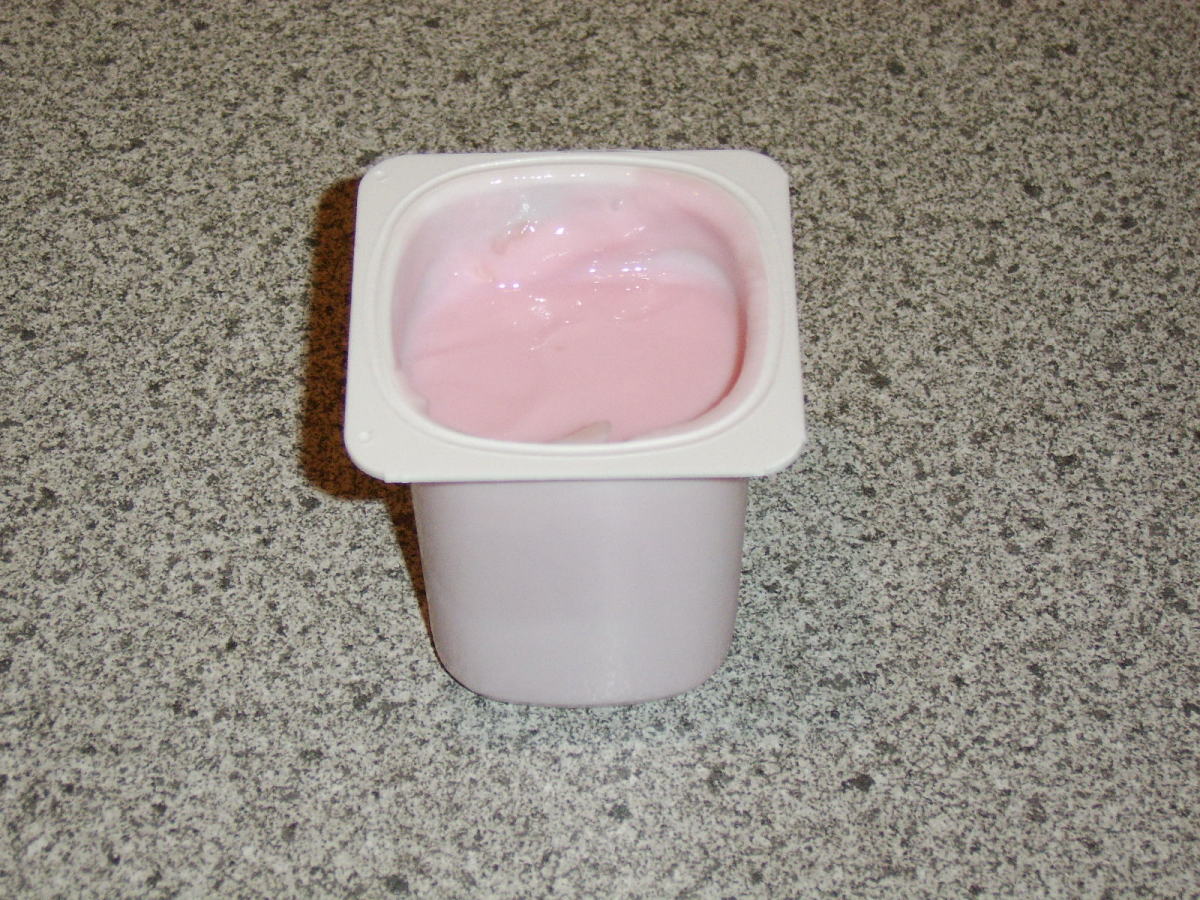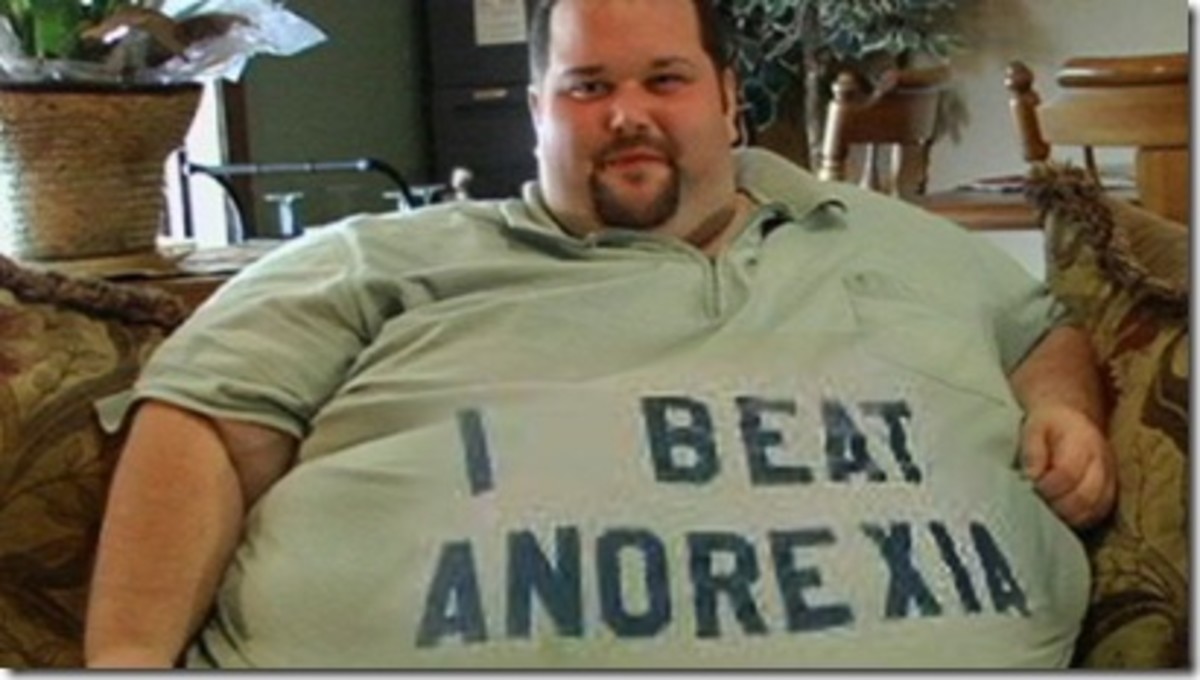Low Fat Cooking With Eggs
The Skinny on Eggs
Eggs have been getting a bad rep for a while now. Ever since the 1970s when studies came out claiming that eggs were loaded with cholesterol, the idea of including eggs regularly in our diet has been considered unhealthy.
If you examine the facts though, the egg has gotten a raw deal. The myth that they're bad for us isn't all it's cracked up to be.
All egg jokes aside, there are many nutritious (and health-enhancing) things to learn about eggs and why using them in low-fat cooking is something we should all be doing.
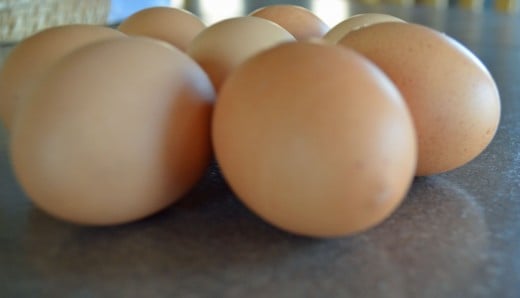
Aren't Eggs Loaded with Cholesterol?
The fact of the matter is, one egg has about 210 mg of cholesterol in it. That's roughly two-thirds of the daily recommended amount of 300 mg--in just one egg. (Eggland eggs clock in with about 180 mg and not sure why there is so much difference in their eggs but factoid stored.)
That said, the experts who have been drumming into our heads for years that cholesterol is what causes heart attacks and strokes are now starting to change their tune. There is no proven link between dietary cholesterol and blood cholesterol levels. So all the hype about eggs being bad for us is unfounded and needing a second look.
The truth of the matter is, eggs are not high fat foods. One egg has 5 grams of fat which is 8% of the daily allowance and 1.5 grams of saturated fat. That makes an egg a low-fat cooking choice and part of a healthier low-fat diet.
Other cholesterol-containing foods have high trans fat and saturated fat ratios, The fat found in the egg though is not the kind of fat that we should be avoiding.
In fact, if you opt for the eggs with omega-3's, you're now getting the equivalent of 3 ounces of salmon. Omega-3's are said to reduce the risk of heart disease. Omega-3's are not found naturally in eggs but it's a thought to ramp up from a heart healthy perspective.
In a University of Connecticut study, analysis was done on people's blood who consumed 2 to 3 eggs per day. While they had noticeable rise in their bad cholesterol levels, they also had a noticeable rise in their good cholesterol levels. The remarkable thing about the data was that the people eating this many eggs had larger particles of both types of cholesterol manufactured in their blood. It's been found that larger particles of bad cholesterol can't adhere to arterial walls so overall, the conclusion was that eating eggs more frequently actually had a more positive outcome than eating eggs less frequently or not at all.
The way the body processes eggs is a positive health benefit rather than a negative. As in all things, most medical societies recommend that you eat eggs in moderation but they are certainly not on the avoid-at-all costs list for low-fat diets--or even low-cholesterol diets.
Can a Low Fat Diet Include Eggs?
The problem with eggs and our perception of low fat isn't the egg itself. Usually, it's the other "stuff" that we add to the eggs.
Think about it--who goes out and just orders an egg?
We order 1 or 2 eggs with 4 slices of bacon, 4 sausages or a slice of ham, hashbrowns and toast.
Or we order a 3-egg omelet which is loaded with butter, high fat cheese and sometimes cream--not to mention all the other stuff we might add to the omelet--like bacon, ham, sausage and other high fat, high cholesterol meats.
So the original egg has now morphed into something high fat from its original low fat state. Remember that fat statistic above--only 1.5 grams of saturated fat.
An egg only contains 70 calories. It's jam packed with vitamins and minerals.
The other amazing property about eggs is that studies have shown that they make people feel full longer. The assumption is that it has something to do with the high protein level in eggs and the moderate fat content. They make people feel less hungry and want to snack less after an egg breakfast. The same studies show that these people actually ate less for lunch because their hunger was much more satisfied.
Low-Fat Cooking Choices with Eggs
- Poached eggs are just the egg--put it on a piece of wheat toast and voila--power packed protein meal very low in fat
- Scramble your eggs with water instead of cream or milk
- If you make an omelet, use only low-fat cheeses or a smaller amount of a very strong cheese--you'll cut the fat--remember it's not in the eggs but in the add-ons
- Substitute vegetables for all that cheese
- Don't fry your eggs--poach them or cook them in a tiny bit of cooking spray with a lid over the top of them
- Eat hard boiled eggs--it's just the egg--a hard boiled egg and tomato for lunch is a fabulous low fat meal that will fill you up
- Use powdered eggs as a substitute in some dishes rather than real eggs
- Cut out butter and use only nonfat, low-fat cooking sprays (or make your own cooking spray) to cook your eggs
- Use egg substitutes for frittatas and quiches--or use the formula below
- For those worried about the cholesterol or the fat in the yolk, use 1 egg and then substitute 2 egg whites for each additional egg--you won't be able to tell the difference in cooking
- Remember that the meats and potatoes that you use contain a huge amount of fat so if you're looking to stay low fat, cut back on portions or substitute other low fat or nonfat meats or substitutes like tofu
Are Egg Substitutes a Better Choice?
Make sure you know what you're buying if you use egg substitutes for eggs. Most of us read the label and think it's healthier by far and that we're saving on all that cholesterol.
While that may be true to some degree, there are other hidden things in the egg substitute like additives which are unhealthy for anyone.
They may also contain vegetable oil (to help them pour better) which is not low fat. It's important to check the labels on these so-called egg replacements to be sure you're not shooting yourself in the foot when it comes to fat content especially if it's saturated fat.
Lecithin is also frequently added to egg substitutes which isn't a bad thing but egg substitutes don't work very well as a thickener or hold up the same way in cooking egg dishes like custards.
The ratio is 1 egg = 1/4 cup of egg substitute or egg whites.
My personal preference is to use the formula of 1 whole egg plus my own 2 egg whites to make up the difference of additional eggs. Anything processed always has to have a down side.
Low-Fat Meals with Eggs
Having eggs 2 or 3 times per week is now not considered the health risk that it once was. Talk to your doctor or nutritionist if you have a family history of high cholesterol as there are some people (about one-third of the population) who will show a rise in cholesterol if they include eggs on a regular basis in their meal plans.
Again though, it's a matter of what study you choose to believe. There is no proof that dietary cholesterol has any impact whatsoever on blood cholesterol meaning that even if it goes up, that doesn't mean that it's going to cause a heart attack or a stroke.
Something to consider as well is the study that showed that the bad cholesterol did not form the same way in people who were including eggs in their diet. There was a documented increase in bad cholesterol and good cholesterol but the bad cholesterol could not cling to the arterial walls.
Another fact about eggs is their ability to prevent macular degeneration. Strange but true, eating eggs can help you avoid blindness, which is the end result of this eye disease.
There are countless ways to use eggs in low fat cooking. An egg can be prepared for any meal of the day in many different ways. If you're concerned about the yolk for instance in a potato salad recipe, use half of the yolks in the salad and toss the rest.
Do the same if you're making deviled eggs. You can still use all the whites as they're the protein power of the little nugget. Use half of the yolks and toss the rest.
Most of the protein of the egg is found in the white while the cholesterol and fat are found in the yolk. If moderation is used, there is every reason to use eggs often in low-fat cooking.


